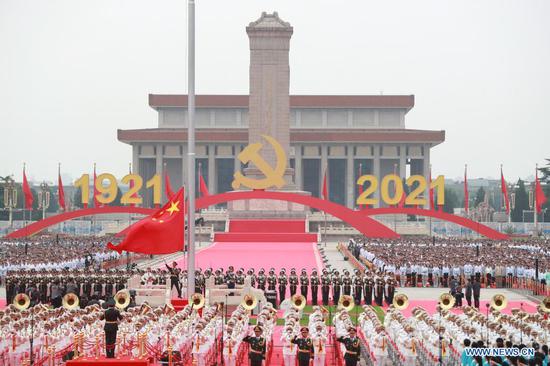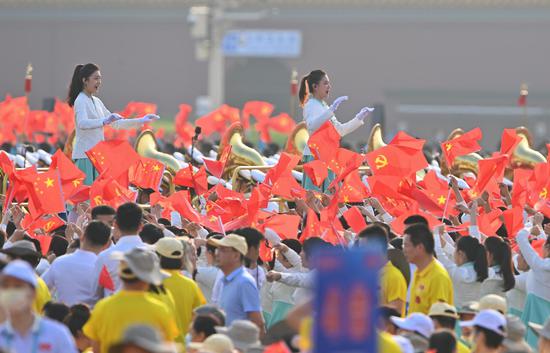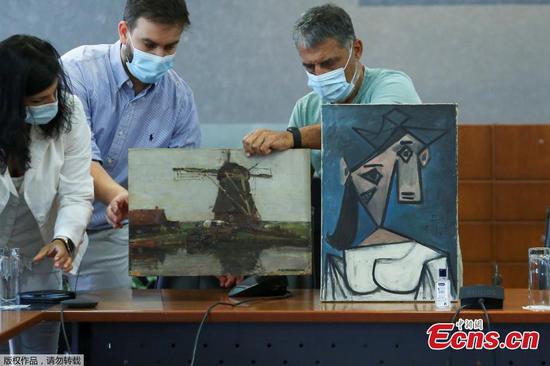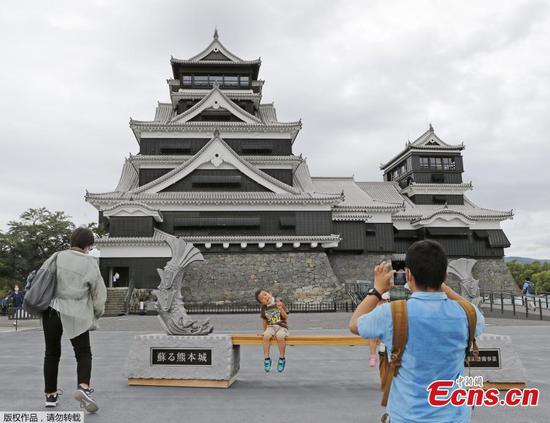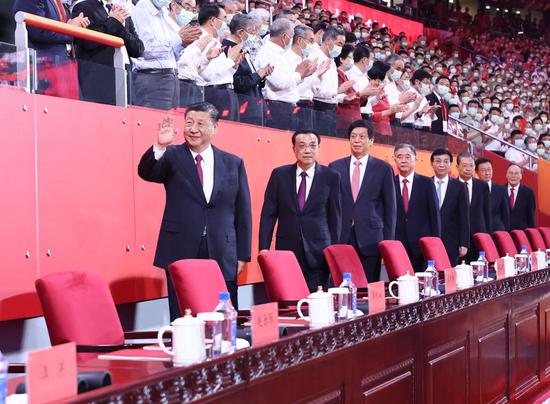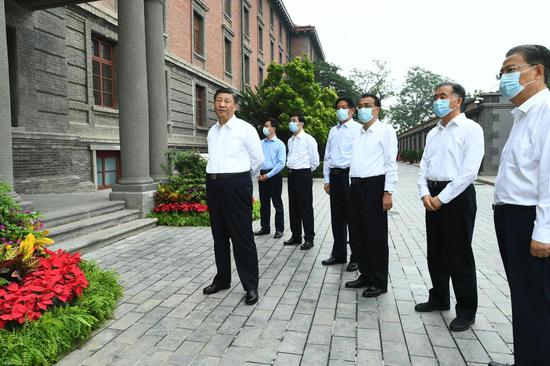The Office of the Commissioner of the Chinese Foreign Ministry in the Hong Kong Special Administrative Region (HKSAR) on Wednesday condemned the blatant vilification by the U.S. Consulate-General in Hong Kong of the national security law in Hong Kong in disregard of the truth.
The office also expressed strong disapproval of and firm opposition to such flagrant interference in Hong Kong affairs and China's internal affairs at large in breach of international law and basic norms governing international relations.
A spokesperson of the commissioner's office said that the national security law in Hong Kong punishes a very small handful of criminals gravely endangering national security, and provides a solid legal safeguard for Hong Kong's transition from chaos to stability. Over the past year since its implementation, social unrest caused by rampant black violence has ended, peace has been restored, and the rights and freedoms of Hong Kong people have been better protected in a safe environment.
It is purely out of ideological bias and ulterior agenda that the United States has selectively turned a blind eye to all these facts, laying bare its motive to sow trouble in Hong Kong, the spokesperson said.
The spokesperson pointed out that the national security law in Hong Kong stipulates that human rights shall be respected and protected; that the rights and freedoms which the residents of Hong Kong enjoy under the HKSAR Basic Law and the provisions of the International Covenant on Civil and Political Rights and the International Covenant on Economic, Social and Cultural Rights as applied to Hong Kong, shall be protected in accordance with the law, and that the principles of the rule of law shall be adhered to, including the principle of legality, presumption of innocence, the rule against double jeopardy, the protection of the rights of the parties in judicial proceedings, and fair trial.
The United States itself has established a rigorous legal framework for safeguarding national security, and shows no mercy in cracking down on offences endangering national security. It has even abused the national security concept to harm the legitimate rights and interests of businesses and citizens of other countries, the spokesperson said, adding that on what grounds can the United States, with such a poor record, heap groundless accusations upon the national security law in Hong Kong?
The spokesperson pointed out that the legal basis for the Chinese government's governance of the HKSAR are the Constitution of the People's Republic of China and the HKSAR Basic Law, not the Sino-British Joint Declaration.
The joint declaration is essentially about China's resumption of the exercise of sovereignty over Hong Kong and arrangements for the transitional period, and all the clauses have been fulfilled. After Hong Kong returned to China on July 1, 1997, no foreign country, including the United States, has the right to meddle with Hong Kong affairs on the pretext of the joint declaration, the spokesperson said.
The spokesperson emphasized that Hong Kong is part of China, and that its affairs are China's internal affairs. The Chinese government is firmly committed to safeguarding national sovereignty, security and development interests, implementing the "one country, two systems" policy, and opposes any external interference in Hong Kong affairs.
"We again urge the U.S. side to reverse course, correct its mistakes, immediately stop interference in China's internal affairs in whatever form, and avoid going further down the wrong path. Otherwise, it would be playing with fire and would definitely get itself burned," the spokesperson added.















